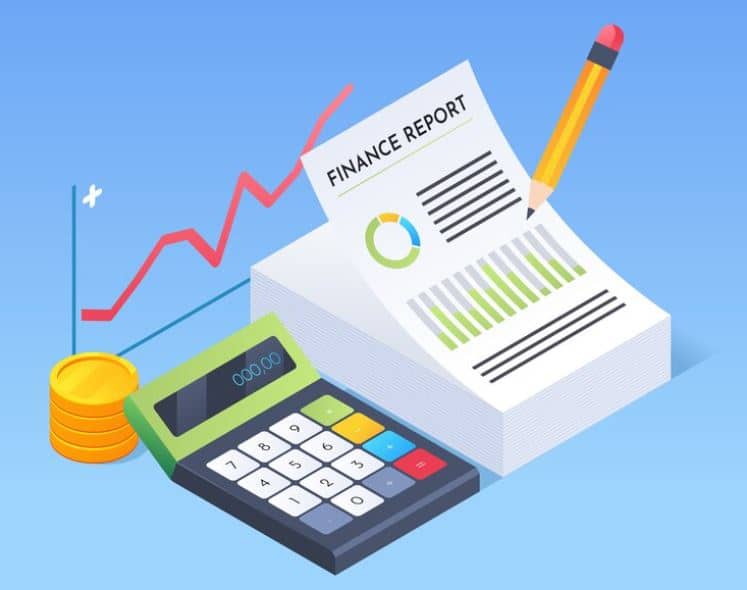Managing the financial aspects of your business involves various factors.
Aside from keeping track of your cash flow, ensuring compliance with your tax obligations is crucial. Therefore, hiring an auditor or accountant from the start can be beneficial.
We can’t stress enough the importance of financial management in your small business. So, let us help you understand the differences between hiring an accountant and an auditor to find which is a better fit for your current needs.
Also read: Your Tax Obligations as an Online Seller
Why even small businesses should manage their financial records and taxes
Even micro and small businesses deal with taxes, no exceptions. But here are some more reasons to manage your financial records well.
1. Legal compliance and regulatory adherence
In the Philippines, small businesses’ gross income is subjected to a 5% to 32% graduated income tax. As a starting entrepreneur, this might be one of the last things that come to mind as you launch your business, but it’s actually the most important.
Failure to comply with these legal standards may cause severe consequences for your business in the long run.

2. Informed decision making and long-term planning
Through financial management, you will have a clear picture of where your business is financially.
Diligently track your income, expenses and other financial transactions to gain better insight into your business’s cash flow, trends, as well as profitability.
This way, all financial decisions will be made strategically and with ample information.
3. Identify and stop fraud
Consistently tracking and reporting your financial transactions will easily detect and prevent any types of fraud.
Mismanagement of funds will also be avoided through constant checking and updating of your books.

Accountant vs auditor: what’s the difference?
Having established the importance of keeping track of your business transactions and financial records, we now go into who are the best people to manage your books, and whether you need an accountant or auditor to handle these matters.
What does an accountant do?
Essentially, their roles are more focused on the day-to-day financial operations of the business.
Accountants are mostly responsible for bookkeeping, preparing financial statements, and taking care of tax obligations for your business. They make sure that your financial records are accurate, up-to-date, and most of all, compliant with relevant regulations.

to protect your financial health.
What does an auditor do?
Auditors are in charge of assessing and verifying the accuracy of your business’ financial records. They’re also experts in providing an unbiased opinion regarding your financial health and emerging trends in the business.
They’re expected to question and find out what happens if your numbers don’t add up.
Hiring an accountant
When to hire one:
It’s ideal to hire an accountant at the start of your small business, especially when you’re still learning the ropes of your operations.
Additionally, small businesses often lean towards accountants during tax season when there’s a greater need for accurate and expert tracking.
Lastly, it’s helpful to hire an accountant when your small business is ready for expansion. As the business grows, responsibilities increase as well, necessitating a designated person to take care of day-to-day financial operations.

What to look for in an accountant:
Make sure that the candidate holds relevant qualifications and certifications. Better if they’re a Certified Public Accountant (CPA) with enough training and experience to provide service to your business.
Additionally, it’s recommended to hire an accountant with industry-specific knowledge. They will know the ins and outs of your industry, which equips them to better understand your business needs.
Hiring an auditor
When to hire one:
Hire an auditor when your business or industry requires it. Some businesses, especially those that are public and state-owned, are required to undergo an audit due to their regulatory and legal obligations.
Another reason is when an audit is requested by potential investors or lenders. This is to establish credibility and reliability in your records and books.

and guide it toward sustainability and and scalability.
What to look for in an auditor:
Look for someone with independent and unbiased opinions to guarantee an objective assessment of your records. It would also help to hire someone with substantial experience working in your industry.
As with hiring a well-versed accountant, an auditor with ample knowledge of your industry will provide valuable inputs based on expertise and tenure.
Prioritize your business’ financial health
When starting a small business, the temptation to do everything yourself is strong. This will save money and there’s a certain accomplishment in building everything from scratch.
However, this method is prone to human errors, especially when things start to get overwhelming as your business grows.

It’s only right to hand over the crucial tasks managing your finances to the experts. This will benefit the long-term health and sustainability of your small business.
Hiring an accountant or auditor will give you a clear and accurate picture of your sales and cash flow. But more than that, you can have a sense of security that you’re staying on top of your financial health and your legal obligations.
More helpful tips for your small business:
Take Note of These Tax Exemptions for MSMEs
10 Tips for Effective Cash Flow Management
8 Government Programs for Micro-Businesses and SMEs






